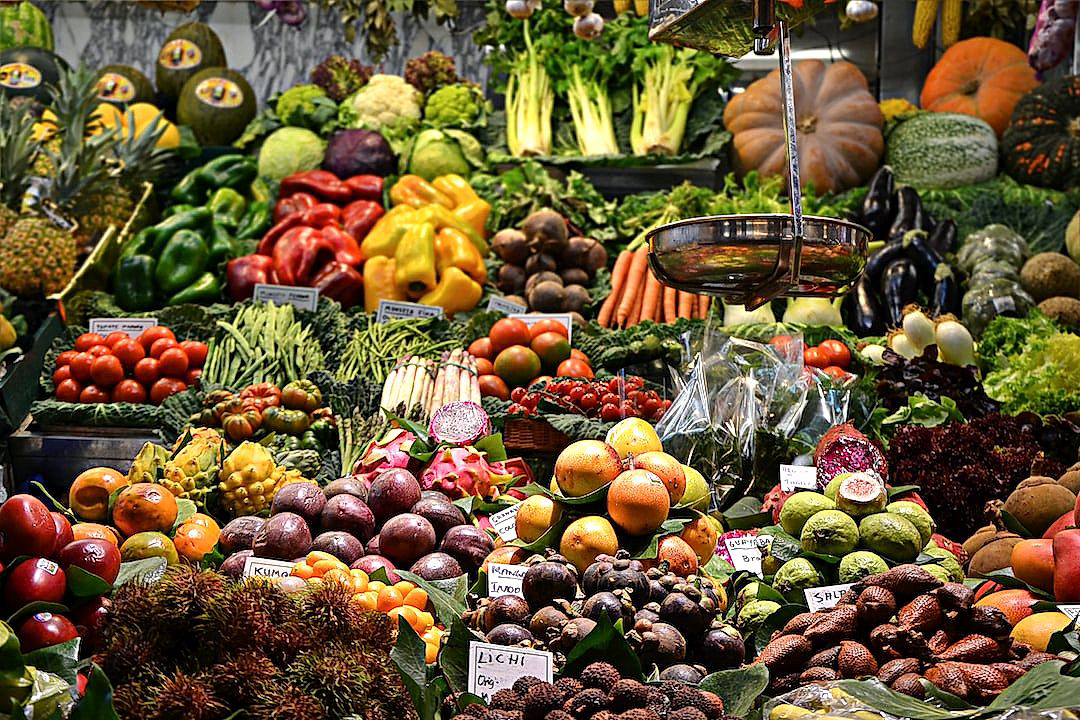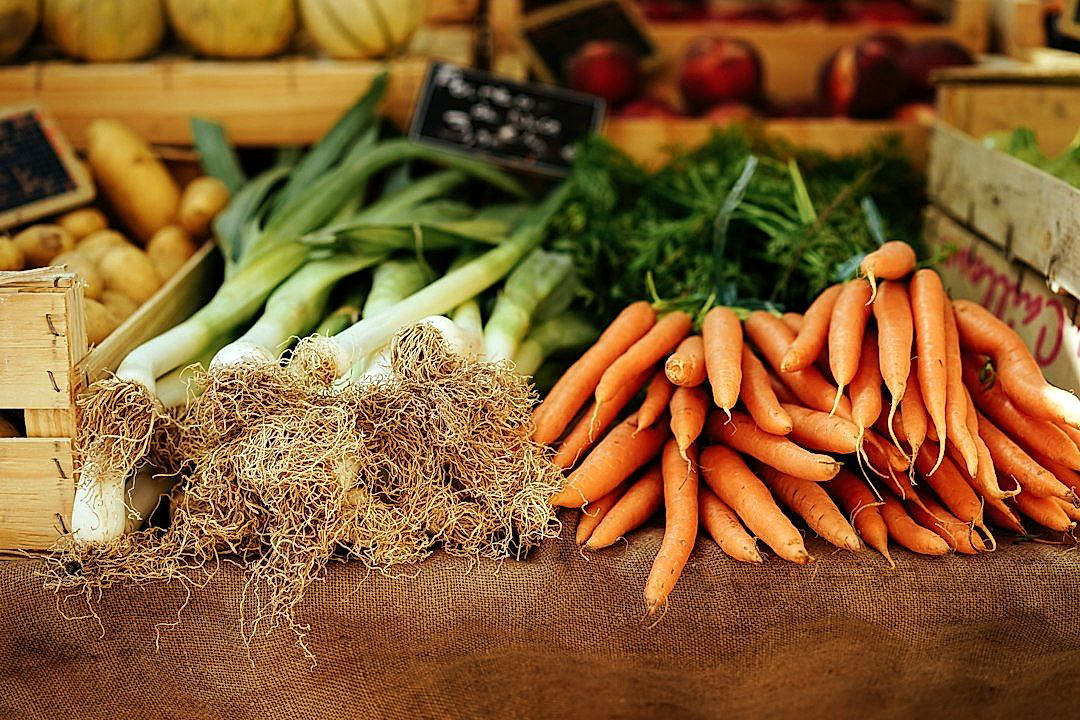Establishing a strong local market presence begins with a solid strategy, particularly when it comes to retailing produce.
One must understand the nuances of consumer behavior, the supply chain specifics, and the unique challenges of perishable products.
Winning over consumers and exceeding their expectations requires an analytical approach, coupled with a keen understanding of the market dynamics.
Offering quality produce alone isn’t enough; success in today’s competitive retail industry demands much more.
Effective strategic planning, synchronized operations, and a thorough understanding of customer preferences are paramount.
Discussing a range of these strategies, this article aims to arm you with practical insights to make a mark in your local produce retail landscape.
Contents
Strategies For Building A Local Market Presence In Produce Retail
1. Establish partnerships with local farmers
In the competitive retail landscape, leveraging local partnerships can give your business a unique selling proposition.
By partnering with local farmers, your produce retail store can guarantee the freshness and quality of your products.
These partnerships not only make it easier for you to stand out from national chains, but they also allow you to support the local economy.
Building a relationship with farmers incorporates a valuable sense of authenticity and community into your brand’s identity.
Local partnerships are more than just transactions; they’re about building sustainable relationships that promote mutual growth and public relations opportunities.
In addition, consumers are more likely to shop at retailers who source locally because it demonstrates commitment to the community.
Offering local produce also reassures shoppers about the transparency and traceability of your supply chain.
Regular communication with farmers lets you keep abreast of what’s fresh and in season, giving you the upper hand in marketing and planning.
This direct line of communication is essential for navigating challenges like weather changes or crop diseases that can impact harvests.
Moreover, displaying the names and faces of farmers on the packaging etches a personal connection with customers – an influential branding tool.
To truly maximize these partnerships, consider regular farm visits to connect, learn, and foster goodwill.
Your business could even host events at the farms to involve the community and further cement the relationship.
Lastly, cultivating these partnerships is not a once-off effort. It requires ongoing effort, negotiation, and mutual support.
Commit to buying a certain quantity regularly, and consider offering the farmers a premium for high-quality produce.
Through these partnerships, your retail business will truly resonate with consumers as a locally-focused, sustainable, and authentic presence.
2. Offer Samples of Local Seasonal Produce
One of the key strategies in building a local market presence in produce retail is offering samples of local seasonal produce.
By doing so, you allow customers the opportunity to try said produce and gauge its quality and taste before making a purchase.
This practice can boost customer trust and confidence in your products, drawing them to choose your business over non-local competitors.
Offering samples of local seasonal produce has the potential to become a game-changer for your retail produce business.
It also provides a platform for local farmers to showcase their fresh, high-quality produce to the market.
This kind of engagement can lead to creating a strong bond between your business and local providers, thereby strengthening your local market presence.
Offering free samples is also a great way to introduce customers to new products they might not have tried otherwise.
By promoting products that are in season, retailers can enhance customers’ culinary experiences and inspire them to seek local produce more regularly.
Free samples can be offered in-store, or at local markets, fairs, expositions, or other community events where your target clientele is likely to be present.
To improve effectiveness of sampling, knowledgeable staff who can answer product or farming-related inquiries should manage these sampling events.
Furthermore, retailers can leverage customer testimonials and feedback from these sampling events to enhance their marketing efforts and draw more customers.
Aside from exposing customers to local produce, samples can also be a way to showcase unique recipes using the local seasonal produce which can be an additional selling point.
In the long run, offering samples of local seasonal produce can contribute significantly to creating a loyal customer base committed to supporting local businesses and farmers.
Though it might initially seem costly to give away free samples, the potential return on this investment can be immense in terms of customer acquisition, retention, and overall business growth.
This strategy can also play a significant role in your overall branding, positioning your retail outlet as a community supporter and reliable source of fresh, local, and high-quality produce.
Consequently, offering samples is a strategy worth considering for every retail business looking to establish a robust local market presence.
3. Invest in Localized Marketing Campaigns
Local presence in a produce retail market may largely be influenced by a successful localized marketing campaign.
It begins with understanding the personality, lifestyle, behaviours, and tastes of the target consumers in a specific locale.
Investing in localized marketing is fundamental in making the local consumers feel part of your brand.
Local marketing allows for connecting with the local audiences and building relationships.
It is simply making your business and produce feel “local” to the people and subsequently influence their purchasing habits.
It is pivotal to creating a sense of belonging and acceptance in the local market.
A well executed localized marketing campaign in a produce retail business effectively promotes the visibility of local farmers within the food system.
This makes local consumers feel part of the story and encourages them to invest in local products.
The right marketing tools should be chosen carefully to match the local context and consumers’ preferences.
Digital marketing should not be ignored as it is a vital tool in reaching out to local audiences.
The marketing initiatives should be tuned to communicate the quality and advantages of the locally grown products.
Integrating local culture, using local languages or dialects, featuring local events or symbols, in marketing collaterals, can create a connection with the local consumers.
Hence, investing in such initiatives positions your business as an integral part of the local community.
Influence of local influencers and bloggers in the marketing campaigns can be beneficial in extending the market presence.
Localized marketing campaigns are pivotal to establishing strong relationships and loyalty with the local consumers.
This in turn, creates a loyal customer base, driving repeated business from the local consumers in the produce retail market.
4. Sponsor Community Events and Activities
When it comes to building a local market presence in the produce retail sector, the role of community engagement cannot be overstated.
Sponsoring local activities and events is an effective way of gaining visibility and fostering positive relations within the community.
Choosing to associate your business with community-based initiatives allows both the public and potential customers to form a favorable impression of your brand.
For produce retailers, a great place to start would be farmers’ markets and other related events where potential customers would have an interest.
This sets an establishable link between your retail brand and locally sourced, fresh produce.
Proactively sponsoring these type of venues not only builds your presence at the event itself, but it also indirectly encourages community appreciation for local produce.
It affirms your business’s commitment to promoting health and well-being, creating a positive brand image.
Besides creating a presence via event sponsorship, consider hosting educational workshops or demonstrations related to healthy eating, cooking techniques or home gardening.
Such initiatives assist in positioning your business as a leading frontier in driving the local food movement, and at the same time, it engages in meaningful ways with the community as a whole.
Offering free samples of your produce or prepared dishes at these events can showcase the quality of your products directly to existing and prospective customers.
Moreover, it can also provide fantastic opportunities for networking with other local businesses and potential suppliers, fostering a sense of camaraderie and mutual support among local enterprises.
Remember to use your sponsored events as an opportunity to interact personally with your community members.
Take this chance to gather feedback, resolve queries, or even just get to know your customers- these little details contribute significantly towards building a strong local customer base.
By becoming a familiar and trusted face, you will be at the forefront of your customer’s minds when it comes to purchasing fresh produce.
Moreover, always heartfelt thank-yous for event attendees or public acknowledgements of the community’s support on your social media helps to create a sense of closeness with your customers.
This will not only cement your business as an important part of the local community but also helps to retain a loyal customer base.
5. Provide Exceptional Customer Service
Providing exceptional customer service is a cornerstone of building a local market presence in the produce retail sector.
Retailers need to understand their customers, their needs and their expectations to be able to offer a level of service that sets them apart from the competition.
Training staff to provide a high level of customer service is critical to the success of a local produce retailer.
Employees should be knowledgeable about the products, able to make recommendations, answer questions, and provide information about where the produce comes from and how it was grown.
Good customer service also involves listening to customers, understanding their needs and tailoring the service to those needs.
The retailer should also be easily accessible to customers, with multiple channels available for customers to get in touch and queries promptly addressed.
Client feedback should be actively sought and used to improve service levels and adjust the product offering.
A strong focus on customer satisfaction goes a long way toward ensuring repeat business and building a solid local market presence.
An adequately trained staff, excellent communication, and a proactive approach to customer service can transform a simple shopping trip into an enjoyable experience.
Moreover, high-quality customer service can lead to positive word-of-mouth, expanding the reach of your business in the local market.
Customers who feel valued and appreciated are more likely to become loyal customers and advocate for your products within their social circles.
Remember, in a local market, people value personal relationships and friendly interactions – which makes the quality of customer service even more important.
It’s vital to create a positive and welcoming atmosphere in your store, make consumers feel at home, and ensure your team is always available to offer a helping hand.
Finally, a successful retail produce business will anticipate their customers’ needs and go above and beyond to meet them—making excellent customer service a top priority.
By making customer service a cornerstone of your business, you can create a strong local presence in the produce retail market and leave a lasting positive impression on your customers.
The Bottom Line
Aligning a business with local farmers, offering samples of seasonal produce, investing in local marketing, sponsoring community events and activities, and providing top-notch customer service are all crucial strategies for a local produce store to thrive and foster a strong community presence.
Such initiatives not only promote the sale of seasonal produce but also contribute to value-added customer experience and community engagement.
Cultivating these strong community ties is not just good business; it is emblematic of a store’s commitment to sustaining local economy and promoting healthy lifestyles.
In so doing, we plant the seeds for a prosperous future that grows together with the community we serve.




